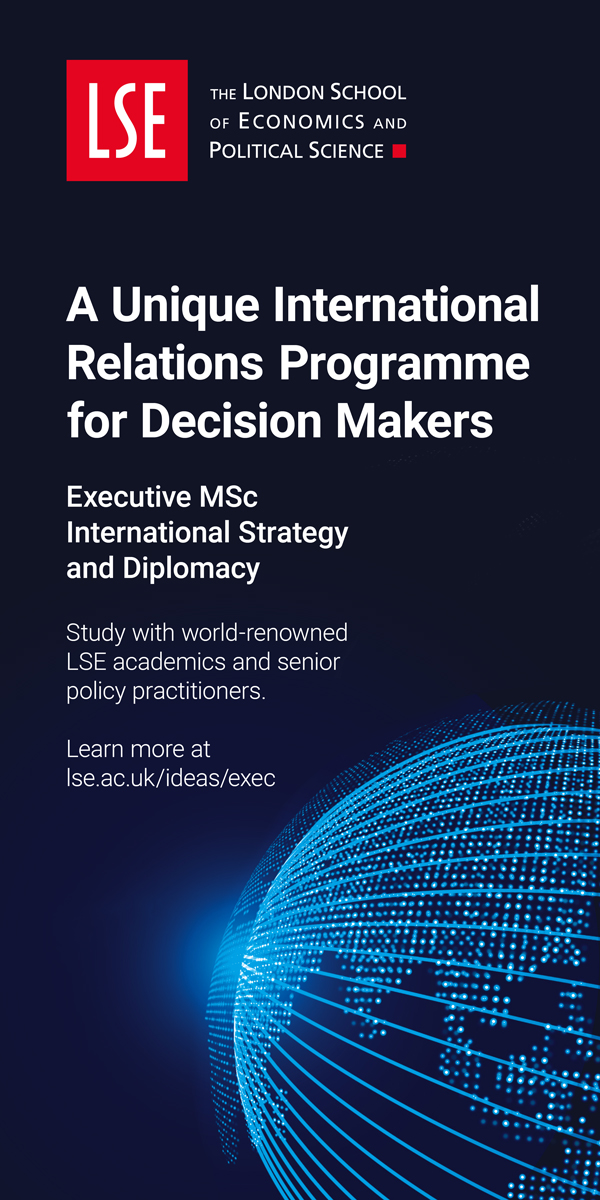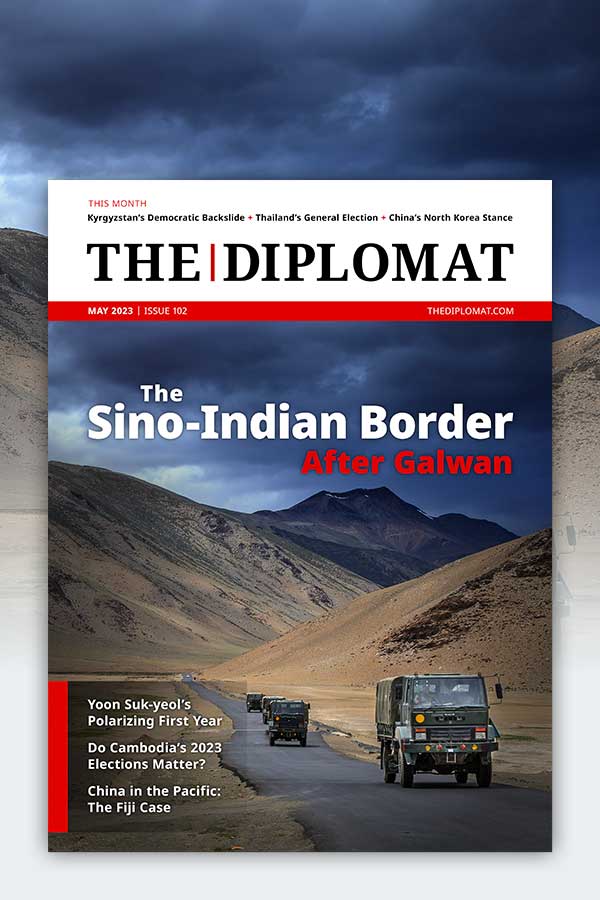| Welcome to the latest issue of Diplomat Brief. This week our top story explores the Southern Thai Railway, a crucial transportation link that has also become a major target for insurgents. We also have an interview with Amitav Acharya, a professor at the School of International Service at the American University in Washington, D.C., about why democracy failed in Myanmar. |
| Story of the week | ![[object Object]](https://thediplomat.com/diplomat-brief/2023/vol21/images/feature.jpg) | Society Southern Thailand’s ‘Insurgency Express’What Happened: Since 2004, a separatist insurgency has been carrying out attacks in southern Thailand, seeking an independent homeland for the region’s Malay-Muslim majority. The railway that traverses Thailand’s southern provinces of Songkhla, Pattani, Yala, and Narathiwat has become a major target, including a series of coordinated bombings in April. Exact figures on the number of attacks on the “insurgency express” are classified, but estimates range from a few dozen to over 100 in the past 19 years. Our Focus: The train “is mainly used by the region’s poor, many of whom do not have any other form of transport,” Gerard McDermott and Richard Humphries write for The Diplomat, based on a recent trip to southern Thailand. The train “is also used by schoolchildren, as transport to schools in the region is in short supply.” Despite that, “the train has been attacked ceaselessly by insurgents who clearly see it as both an easy target and as a symbol of the Thai state.” Train cars have been bombed, sprayed with machine gun fire, and derailed due to sabotage to the railway tracks. As a result, shortly after departing, the railway passes by a “train graveyard,” where passengers can see “ the wreckage and ruins of old and damaged trains gathered together at the edge of the station.” What Comes Next: “It is attacks such as this, targeting essential services such as public transport, local administration, and schools, that have made BRN’s insurgency increasingly less attractive to the local Muslim population over the last two decades,” McDermott and Humphries write. Despite the risks, the train route continues to be popular with locals, who have few other means of transit. As a result, “a journey on the Insurgency Express serves as a type of overview of a unique, complex, and layered region, home to different communities living together, yet separately.” Read this story |
| Behind the News | INTERVIEW Amitav AcharyaAmitav Acharya, a professor at the School of International Service at the American University in Washington, D.C., and the author of “Tragic Nation Burma: Why and How Democracy Failed,” on the military’s refusal to step down: “I think the tragedy of Myanmar had to do with regime survival. Once having tasted power in the wake of the 1962 coup by General Ne Win, the military could not, or would not, give up. It is like riding a tiger.” Read the interview |
| This Week in Asia | Northeast Asia China’s Special Envoy Continues Russia-Ukraine Mediation EffortsLi Hui, China’s special representative on Eurasian affairs, will continue his tour of Europe this week, making good on a promise made by Chinese President Xi Jinping in an April phone call with Ukraine’s President Volodymyr Zelenskyy. Last week, Li visited Ukraine and Poland; as expected, there were no major breakthroughs but there were some promising signs of cooperation on specific issues like food security. Next up on his itinerary: France, Germany, and Russia, where Li previously served as China’s ambassador. Meanwhile, Russian Prime Minister Mikhail Mishustin was in China on May 23 and 24 – a clear sign of Beijing’s support after the constant criticism of Moscow during last weekend’s G-7 summit in Hiroshima, Japan. Find out more | South Asia India’s Prime Minister Visits the PacificFresh off attending the G-7 summit in Japan, Indian Prime Minister Narendra Modi has been advancing India’s interests in the Pacific Islands. First, he held a summit with Pacific Island leaders during a visit to Papua New Guinea; then Modi headed to Australia from May 22 to 24. While India’s prime minister was originally scheduled to visit Australia as part of a Quad summit, the trip turned into a full Modi love-fest after the Quad gathering was scrapped. Find out more | Southeast Asia Thailand’s Move Forward Party Cements CoalitionFresh from its stunning win at Thailand’s general election last week, the progressive Move Forward Party (MFP) has signed an agreement with seven other parties on a joint policy platform. The 23-point platform, which was unveiled earlier this week, includes pledges to reform the military and police, abolish conscription, legalize same-sex marriage, and break up economic monopolies. However, the MFP has chosen to shelve, at least for now, its pledge to amend Thailand’s divisive lese-majeste law. The move can be seen as a pragmatic move to cement its eight-party coalition with an eye to winning party leader Pita Limjaroenrat’s election as prime minister when the parliament meets for a joint session in July. Find out more | Central Asia The Karakalpakstan ConundrumKarakalpakstan, according to its constitution and Uzbekistan’s, is a sovereign entity. Within the Uzbek Constitution it is granted the explicit right to secede from its relationship with Uzbekistan via referendum vote. But discussing independence, let alone advocating for it, lands Karakalpak activists in heaps of trouble both in the region and abroad. Find out more |
| Visualizing APAC |  | Palau, the Federated States of Micronesia, and the Marshall Islands – the three Pacific countries with which the U.S. has Compacts of Free Association – occupy a key strategic location in the western Pacific Ocean. See the full picture |
| Word of the Week | Society TalanoaA term used across many Pacific Islands countries, including Fiji and Samoa, that refers to an inclusive and transparent dialogue designed to gather knowledge and collectively discover solutions. Find out more |
|  |




![[object Object]](https://thediplomat.com/diplomat-brief/2023/vol21/images/feature.jpg)

